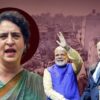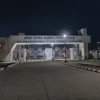Police cremated the bodies of Maoist leaders Nambala Keshava Rao and Sajja Venkata Nageshwara Rao, denying handing over the bodies to their families, who have been camping at the hospital after the High Court ordered the release of the bodies to their families. However, the Chhattisgarh and Andhra Pradesh Police refused to comply, saying that handing over the bodies would lead to regional memorialisation and such reminiscences etched in the youth. The police and administration anticipate further strengthening of the movement.
The 50-hour-long ‘Operation Black Forest’ undertaken by the Indian security forces killed 27 Maoists, an attempt that India’s Home Minister, Amit Shah, addressed as a ‘landmark achievement’. The Maoists were hunted down in the Abujhmad Forests of the Narayanpur district of Chhattisgarh.
Six days after they were killed and two days after the court ordered the handover of the bodies to the families, the Chhattisgarh Police committed the cremation, alleging that the bodies were unclaimed, although the families were camping at the hospital demanding the release.
The family of Nambala Keshava Rao, alias Basavaraju, conveyed that the Andhra Pradesh Police told them not to travel to Chhattisgarh to claim the body, The Wire reported. Despite the pullbacks, the family started their journey from their hometown, Jiyyannapet in Srikakulam, but had to return due to numerous phone calls and pressure to account for their absence.
Following this, the families of Nambala Keshava Rao and Sajja Venkata Nageshwara Rao together filed an appeal with the High Court, to which the Court accepted the request and ordered the release of the bodies to the families after the post-mortem. Both the Andhra Pradesh and Chhattisgarh governments had agreed to this. However, seven of the Maoists, along with the two leaders, were cremated, saying that the families were not able to prove the familial relations.
Families say that they have been waiting at the hospital with Aadhaar cards. The Narayanpur police continued to send us back and forth between the district hospital and the police authorities. They also alleged that the police officials asked them to provide a recent family photograph of Keshava Rao, and that the bodies were kept open without proper embalming.
“This is impossible, as he had joined the Maoist movement nearly five decades ago. How can we produce a recent photo of him? We were hoping to see at least his dead body?” They were quoted as saying by The Wire.
Basavaraju had joined the movement underground 31 years prior, during his master’s studies and left for Chhattisgarh, away from his hometown in Andhra Pradesh. He also runs a party publication, Awam-e-Jung, the police claim.
The Coordination Committee for Peace, a group of academicians and rights activists, have published a statement on May 26, appealing to the Government of Chhattisgarh to “honour its commitment made before the High Court and release the bodies immediately to prevent further deterioration and allow families to bid farewell to the departed with dignity.”
Poet and activist Meena Kandasamy has also appealed for the return of the bodies to their families. “This is inhuman and petty, merciless and unbecoming of a democracy. A jailed Maoist can be in police custody—but why should the corpse of a slain Maoist belong to the Police?”



























































